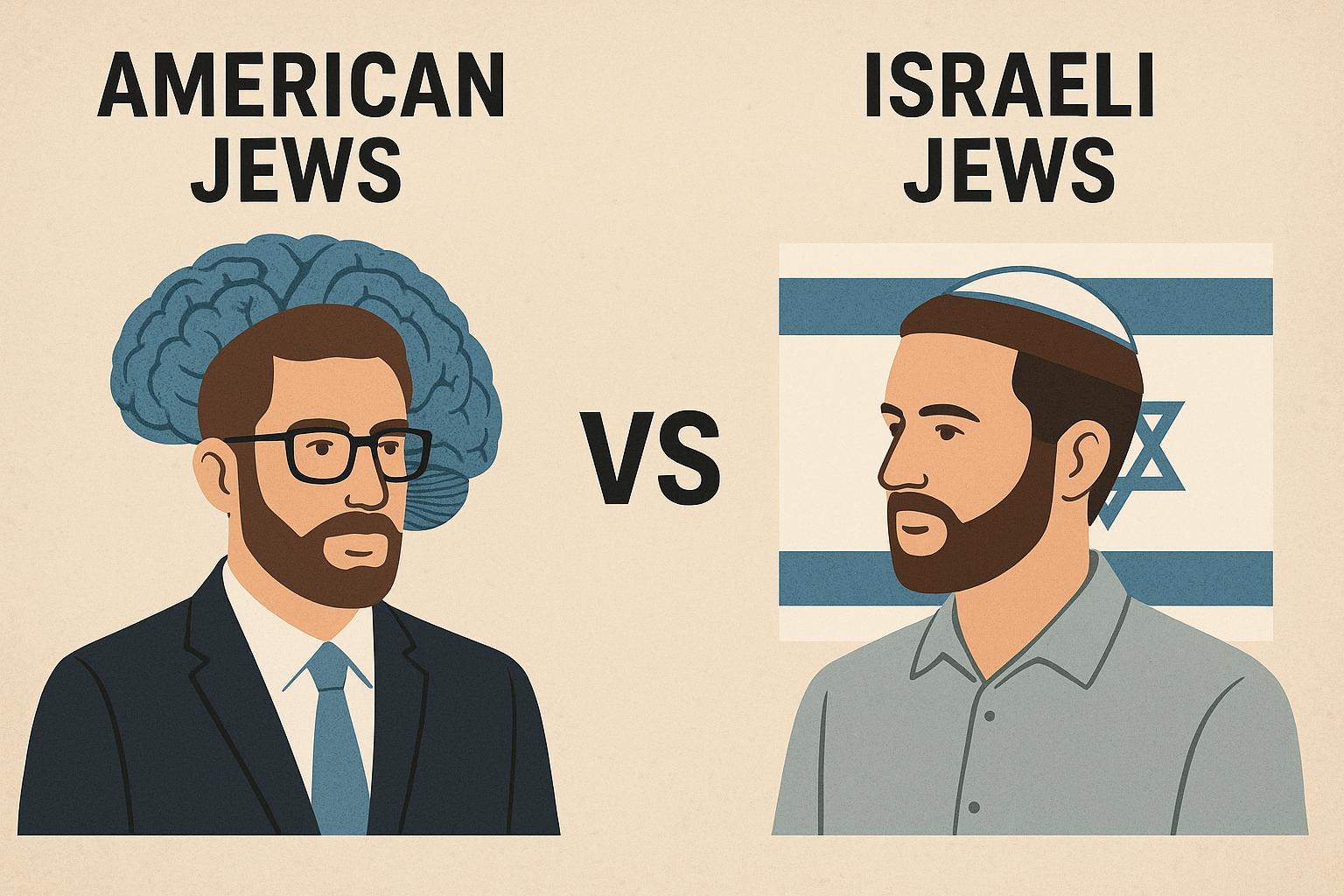This is not about identity. It is about results. Again and again, American Jews outperform their Israeli counterparts in academia. Whether winning Nobel Prizes, shaping groundbreaking theories, or advancing science, philosophy, and law, American Jews dominate the intellectual stage. Meanwhile, Israeli Jews, despite sharing the same ethnic and religious roots, rarely achieve such global impact. So, why does this disparity persist?
The reason is not race. Instead, it lies in institutions. It lies in culture. It lies in education. And it lies in structure.
The school system shapes the mind
To begin with, American Jews grow up within the American school system. From the earliest years, they engage with an educational culture that prioritizes critical thinking, creativity, and independence. The U.S. academic tradition—flawed as it may be—rewards curiosity, encourages questioning, and fosters the ability to produce peer-reviewed, original thought.
In stark contrast, Israeli schools are nationalist, state-centered, and often infused with militaristic values. These schools rarely promote global criticism. Instead, they cultivate local conformity. While American students are told to think for the world, Israeli students are told to serve the state.
Moreover, American Jewish students grow up knowing they must compete on a global stage. Their peers are international. Their competition is fierce. Consequently, this fosters ambition and rigor. Israeli students, by contrast, perform within a closed loop. They aim for approval within the system. The bar is lower. The risks are fewer. The reward is comfort, not excellence.
American Jews: The Anglosphere matters
Furthermore, American Jews study and teach in Anglo-Saxon academic culture—the global standard. This system demands sourcing, welcomes criticism, relies on data, and enforces peer evaluation. Success, therefore, requires adaptation, resilience, and transparency. Scholars who cannot meet the challenge do not rise.
On the other hand, Israeli academics rarely undergo such tests unless they emigrate. At home, they navigate opaque, hierarchical institutions. Too often, Israeli universities mirror the worst aspects of national power: rigid bureaucracy, secrecy, and political favoritism.
As documented in this article, Israeli academia (and not only this one) is riddled with patronage. Promotions reward loyalty. Research grants follow alliances. Departments resemble political parties more than intellectual communities. This isn’t occasional corruption—it is a systemic flaw.
Academia: Global exposure vs local echo chambers
Meanwhile, American Jews work in the best-funded universities on Earth. They participate in a network of journals, think tanks, and global conferences. And they publish in English. They are judged by international peers. Thus, every criticism sharpens their work. Every submission is a public test.
By contrast, Israeli scholars often remain locked in national conversations. Many publish in Hebrew; many aim to win favor with local gatekeepers. Many echo state ideology. The result? Isolation. Self-reinforcement. Intellectual stagnation.
Even international money cannot fix Israeli academia
Ironically, Israeli institutions benefit from massive support from international Jewish philanthropy. However, even with that money, they fail to reform. Why? Because cash cannot change culture. Money helps—but only if the values are ready to evolve.
When the tribal, insider-driven logic of Israeli academia persists, no donation can cure it. You cannot buy open-mindedness. You cannot wire-transfer meritocracy.
The same problem appears in Israel’s tech sector. Despite global praise and venture capital, deep innovation remains rare. The focus is military, tactical, and short-term. The culture discourages risk, basic research, or long-horizon vision. Behind the gloss lies bureaucracy, nepotism, and stagnation.
Intelligence is not just genetic
But let us go even deeper. What do we mean by intelligence? American Jews appear smarter—but not due to DNA alone. Intelligence is not merely inherited. It is cultivated.
As shown in this article, IQ is not fixed. It grows or shrinks depending on culture. A culture that encourages questioning, reasoning, and synthesis builds intelligence. A culture that values slogans, obedience, and hierarchy inevitably degrades it.
Culture does not simply shape behavior—it shapes the brain. The environment wires cognitive pathways. Children in intellectually demanding settings develop stronger abstraction, better problem-solving, and deeper memory. In contrast, rote environments atrophy these same mental muscles.
Moreover, neuroscience confirms this. The brain’s plasticity means it responds to what we feed it. Just like muscles need resistance, cognition needs challenge. The g-factor—the supposed core of general intelligence—is heavily influenced by educational quality, language complexity, peer norms, and family dynamics.
That is precisely why intelligence flourished in Jewish diasporas embedded in rich urban cultures. It is also why American Jews outperform not only Israelis, but also Jews in insular or oppressive systems. Wherever the culture stimulates the brain, IQ rises. Wherever culture limits thinking, intelligence falters.
In short, culture produces IQ. Intelligence is not the seed—it is the fruit.
Diaspora thinking vs national thinking
Cultural mindset, too, matters just as much. Diaspora Jews live as minorities. They learn to navigate between systems, to challenge dominant ideas, and to survive through wit and perspective. They are outsiders trained to read inside lines.
In contrast, Israeli Jews live as the majority. The state validates their worldview. The military shapes their adolescence. The national narrative surrounds them. They are not trained to doubt power—but to follow it.
Diaspora thinking generates scholars. National thinking breeds soldiers.
Conclusion: Culture produces brains
This is not an insult—it is a wake-up call. Israeli Jews are not less intelligent. They are less enabled. Their system discourages the very qualities that global academia demands. Meanwhile, American Jews benefit from cultural scaffolding that amplifies intellect, rewards inquiry, and challenges dogma.
Unless Israeli universities tear down their patronage networks, open themselves to foreign review, and dismantle tribal loyalties, they will fall further behind. Because ultimately, culture—not money, not blood—builds the brain. Intelligence is not the beginning. It is the outcome.

Leave a Reply